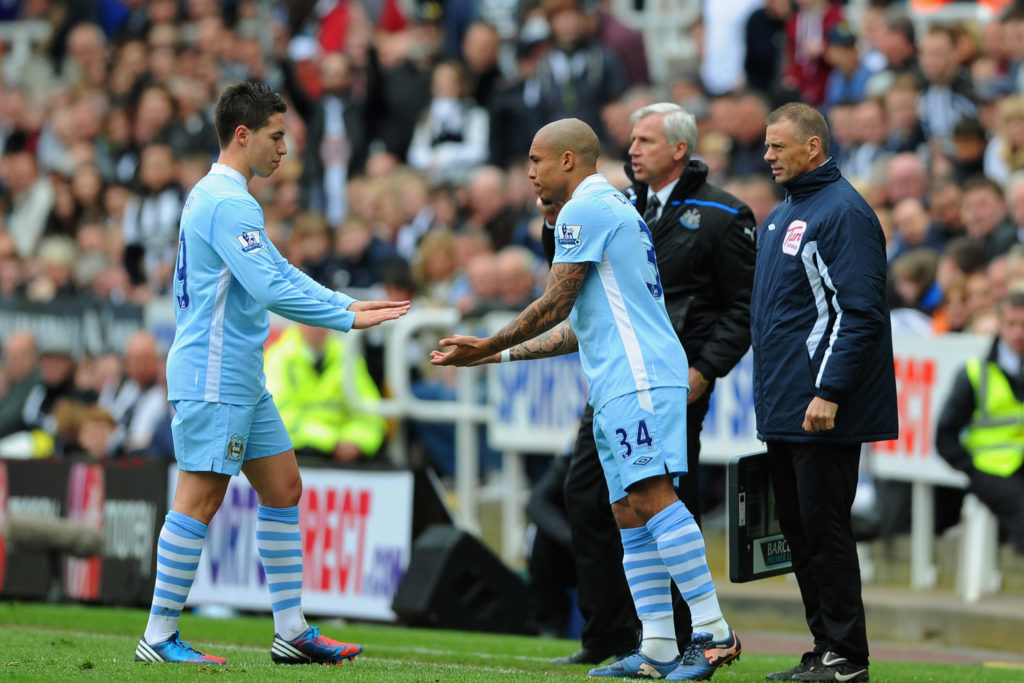Substitution of players is almost an ever-present part of today’s football matches. This can be done because there are players on the field who are injured or for tactical reasons. However, including substitutes is not simply present in football as we see it today, there are factors that make this rule created and growing.
English Football enforced the first substitution rules in the 1965-1966 season, only once if a player is injured. On 21 August 1965, the first substitution was made in league football history in the opening match of the second division between Bolton vs Charlton Athletic. The game has been running for 11 minutes Charlton goalkeeper Mike Rose suffered an injury so he could not continue the match.
Keith Peacock, who plays as a midfielder, comes on to replace him and becomes the first substitute player to carry out these rules. Charlton did not enter Peacock as a goalkeeper but instead moved their left back, John Hewie, to goalkeeper. Unfortunately, the substitution did not prevent Charlton Athletic from losing 4-2 to Bolton.
The thing that Peacock didn’t think about getting a chance to play in the middle of a match at that time, “I clearly remember being disappointed I didn’t play.” he recalled. “I still didn’t expect to be involved in this, but in just a few minutes Mick Rose, our goalkeeper, had to be out. I just realized when on the train back from Manchester, from one of the evening papers, I found that I was the first (to be a substitute). “
On the same day, Bobby Knox also made history by becoming the first substitute player to score. He did it for Barrow in the game against Wrexham. Uniquely, Knox has also been a substitute goalkeeper and made a penalty save as well as being the first substitute player to do so.
Looking at possibilities like those created by Knox, the rules resulted in the “dirty” idea that the team did to get new players on the court, by telling the players on the court to fake injury. Leeds United boss Don Revie is suspected of being a frontrunner to encourage his players to do so so he can make changes when his team needs a change.
Perhaps because of that, after two seasons running according to these rules, the league organizers began to allow substitutions not only because of the injury but also the coach’s technical reasons.
Development of Substitution Rules
In the international arena, substitutions have actually been allowed on the condition that one injured goalkeeper and one other player if injured also in 1958 to the 60s applied for the World Cup.
Previously, football did not recognize substitutions for any reason, the match was only played by literally eleven against eleven from start to finish. If there are any injured players, even the goalkeepers, the match continues with the rest of the people.
Mexico’s 1970 World Cup was the starting point for the official announcement of substitutions allowed for any injured player. Several years later, for the 1994 World Cup in the United States, FIFA allowed the replacement of two players and a goalkeeper for each team. After that in 1995, three changes were allowed in any position, this rule remains in effect to this day.
Returning to British soil, in 1987, a second substitution was only permitted by the FA, more than twenty years after the previous regulations were issued. This is thanks to constant pressure from team managers who feel there is an injustice to have to use a player in another position as a goalkeeper if the goalkeeper is injured during a match. The second substitution rule will allow teams to have one goalkeeper and one other position on the bench, should they be required.
As regulations continued to evolve into the Premier League era in 1992, the FA allowed three players including one goalkeeper to sit on the bench, although only two were allowed to enter. That immediately changed in the 1994/95 season, when the team was allowed to put all three players on the bench even though one of them was the goalkeeper. Changes also occur again in the following season, the team can enter three players on the field in any position. In the 1996/97 season the number of players on the bench increased to five players and increased by two towards the 2008/09 season, although three were still allowed to enter the field.
As time went on, in 2017, UEFA tried the idea of a fourth substitution in extra time. This applies to Women’s Euro, U-19, and U-21 championships. The same rules were applied a year earlier by FIFA at the Inter Club World Cup final. Alvaro Morata is the first player in history to become the fourth substitute, replacing Cristiano Ronaldo when Real Madrid beat Kashima Antlers.
Until now, the rules for changing players have been changed again since the European football league simultaneously stopped due to the Covid-19 virus pandemic. The International Football Association Board (IFAB) introduced a provisional rule of increasing the number of substitutions to five in a maximum of three substitution sessions. This rule may be extended until the 2020/21 season or even become a new rule in football.
ASL
















